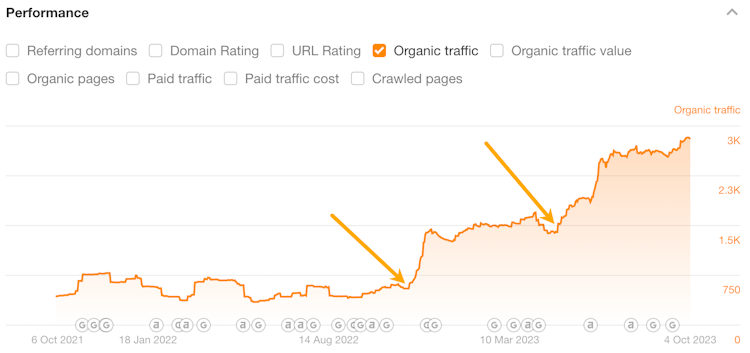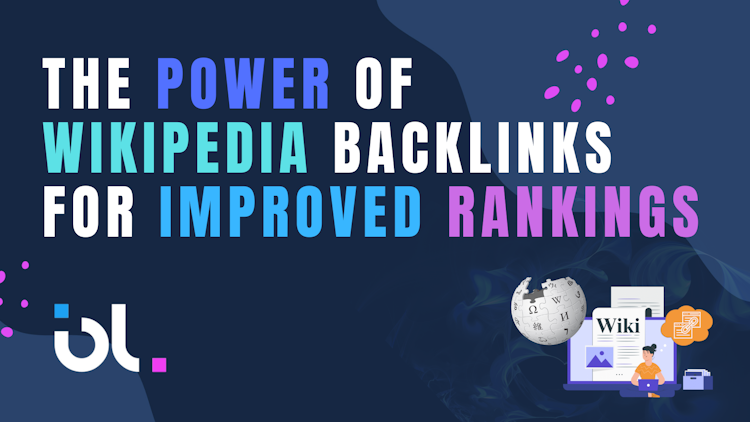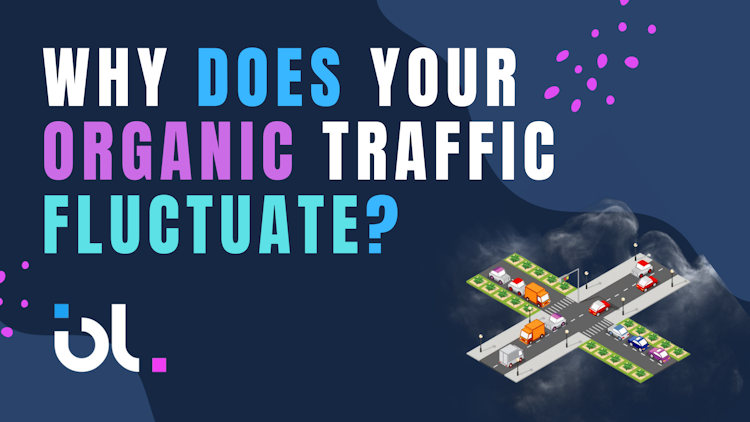Variations in site traffic are a natural and expected element of search engine optimization. Whatever the case may be, such unexpected decreases bring about feelings of tension and anxiety, particularly when you are unsure of how to put things back on track.
You shouldn’t worry if you realize that the number of visitors to your website has decreased. We are here to assist you in restoring and regaining your organic traffic by providing you with a backup plan we have prepared. To get to the bottom of organic traffic fluctuations and how to fix them, we sought the wisdom of Benlola’s SEO Manager.


How Come My Organic Traffic is in Fluctuation?
According to him, the most important thing to do in order to determine the causes of organic traffic drops is to keep a careful eye on your metrics. This is because organic traffic might change for a variety of reasons.
“In order to sort through the minor fluctuations in data, it is essential to regularly monitor key metrics,” he explains. These indicators include seed keyword ranks, organic traffic, click-through rate, and so on. “Pay attention to any reductions in performance that are both significant and persistent, as these may be indications of a more serious problem.”
Google Search Console Issues
The Google Search Console allows you to monitor indexing status, search queries, and crawlers while maximizing website exposure. All of these indicators provide information about your organic traffic and more.
Here are some problems that Google Search Console may help you with:
- Google will take manual action or impose a penalty if one of their human reviewers believes that the pages on your website do not comply with their regulations about spam. These have the potential to completely destroy your organic traffic and plummet your ranks overnight.Within your Google Search Console, go to the ‘Manual Actions’ report in order to determine whether or not your website has been subjected to a manual action. You will be able to confirm whether or not any manual measures have been taken against your website, as well as the explanation behind such actions.You should follow the procedures that Google recommends in order to fix the problem if your suspicions turn out to be correct. It is therefore necessary to send a request for reconsideration to Google.
- The constant implementation of algorithm updates is something that Google enjoys doing in order to keep digital marketers on their toes. It is possible that these Google adjustments may sometimes result in a decrease in the amount of organic traffic.How come? Most of the time, when Google improves its algorithms, it indicates that the search engine giant is gradually raising its standards. There is a possibility that websites that do not satisfy the same criteria may see a sudden decrease in traffic across the board.One piece of good news is that the majority of small updates have a negligible effect. Typically, it is the alterations to their fundamental algorithm that cause things to become unstable. So, how do you manage to get through the updates? You will need to keep up with the latest changes and trends in Google, particularly those that pertain to your sector.Pay particular attention to the adjustments that Google makes to its product reviews, for instance, when it comes to online shopping. Keep an eye on Google’s YMYL (Your Money Your Life) recommendations (for issues linked to joy, health, safety, or money) if you are interested in the law, health, or finance.
- A number of seasonal elements, like weather, holidays, and vacation times, may also have an impact on the amount of traffic that search engines get.If you see a decrease in traffic that cannot be explained, you may utilize Google Search Console to examine how it compares to the same period of time in past years. Find a trend in this? There is a possibility that seasonality is the cause of a decrease in organic traffic levels. For this reason, it is necessary to adjust your search engine optimization approach properly.
- Whether you want to believe it or not, there are occasions when dramatic dips in traffic have absolutely nothing to do with you.In the course of its operations, Google sometimes experiences technological difficulties that result in inaccurate or insufficient data. These hiccups may manifest themselves as decreases or increases in the amount of organic traffic that is shown on your performance report.Thankfully, once Google figures out how to fix the mistake, everything will automatically return to how it was before.Another anomaly in the data? In the event that you make any modifications to the code of your website or to the analytics plug-ins, the tracking code may get corrupted. Because of this, it is possible that the analytics reporting will not be accurate. In order to prevent issues that are not essential, you should first examine the tracking code of your website.


Traffic is halted as a result of website redesign and migration
Your website may have undergone a recent redesign or migration, or you may have added new material to your landing page. Is this the point at which your organic traffic began to steadily decrease? In the event that this is the case, we would like to caution you that something may have been damaged or de-optimized throughout the process.
Our SEO specialist was the driving force behind a comprehensive website migration that merged three different domains into a single site. If it is not managed appropriately, the time that is spent during a site migration carries with it an increased danger of losing keyword ranks as well as site visitors. Benlola was able to properly move all of the domains, maintain a stable level of site traffic during the transition, and successfully navigate through a time of fluctuating organic traffic.
Some of the links on your site no longer work
When it comes to search engine optimization effectiveness, link-building is a cornerstone of content marketing. Variations in organic traffic are influenced by both the number and quality of these factors.
Google considers your website to be less authoritative when it loses links that come from other websites. The consequence of this is that the ranks may drop, which will lead to a decrease in the number of organic visitors.
For monitoring your incoming links, SEO tools like Ahrefs and SEMRush are quite helpful. You may discover sitewide declines in your overall link count with the assistance of these tools. In addition to this, you should examine the internal links on your website. Verify that no redirects are directing users to inactive, incorrect, or out-of-date content.
The same process should be followed in order to determine the state of your backlinks; are they inactive? If this is the case, you might think about getting in touch with the owner of the website or upping your efforts to develop links.
The content is of poor quality
There is a widespread belief that content of poor quality is preferable to having no content at all. Truth be told, the majority of SEO professionals hold the opposite opinion. In fact, content that is below par might do more harm than good for your business. What exactly is meant by the term high standard content?
The acronym E-E-A-T stands for expertise, experience, authoritativeness, and trustworthiness, and it is shown via top-notch content.
Google’s Search Quality Rater Guidelines include this as one of their guidelines. It will perform better on search engine results pages if the content of your website displays E-E-A-T’s characteristics. How come? The reason for this is because it places an emphasis on readability, and the whole user experience is enhanced. The payoff for your efforts is higher search rankings.
As part of your search engine optimization plan, you should include content refreshes and ongoing adjustments to the material and metadata of your website. Make sure that your material does not go stale over time! In the event that you fail to maintain consistently high-quality content, your rivals will.
The level of competition is rising
Your organic traffic might be significantly affected by the SEO methods used by your competitors. Given that they consistently provide value to the audience you’re vying for and keep their site optimized and up-to-date? Your organic traffic and search engine rankings might take a hit.
Always be one step ahead of the competition by keeping an eye on their latest content, keyword rankings, and SEO tactics. Evaluate the efficacy of your keywords and traffic flows. Set your product’s USPs apart from the competition. Makes use of competitors’ winning tactics while avoiding their losing ones.
Impact of technical SEO on visibility
It is possible for technical troubles to come from behind the scenes of the content and URL architecture of your website. Because of this, it is possible that you are unaware of how Google catalogs the pages on your website. And as a consequence, experience a decrease in the amount of traffic. There is a strong recommendation that you pay particular attention to the speed, stability, and performance of your website.
When you have identified the areas of your website that are losing visibility, you should do some manual testing. In addition to that, you should do a crawl using a program such as Screaming Frog to ensure that everything is in excellent condition.
You are losing your ranks due to content cannibalization
What about the keywords absorbing each other? Indeed, that does take place. The phenomenon known as content cannibalization occurs when more than one page on your website is optimized for the same (or similar) search intentions. Due to this digital massacre, the search engine rankings of all these pages have been severely diminished.
Moreover, it should not come as a surprise that Google is unable to determine which of those queries is the most relevant.
You have unaddressed technical errors
There are a number of technical issues that might lead to a decrease in organic traffic, in addition to the rare reporting errors that occur with Google Search Console. How is that different? You have complete control over them. Indexation, performance, and data-related problems are the most prevalent.
Technical SEO audits are one method for finding these problems. This does an analysis of the backend SEO used on the pages of your website in order to identify and resolve any possible problems. Furthermore, you can do it all by yourself; all you need is Google Search Console and a crawl-based tool.
So, here’s the deal:
To successfully navigate the ups and downs of organic traffic, it is essential to have a flexible and resilient mindset while also keeping a close eye on the data you collect.
A little bit of research and some testing will bring you to the answers that your website requires, whether it be navigating the ever-changing world of Google or addressing site upgrades with tact.
Your own actions are the first line of defense against changes in organic traffic, whether it be via the use of competitive research to strengthen your strategy or by the correction of technical issues.
We at Benlola are experts in increasing traffic, conversions, and return on investment. We alleviate the stress that comes with changing algorithms, competing research, and technological speed bumps when it comes to swings in organic traffic.
If you choose to work with us, you will be able to concentrate on managing your empire while we take care of the tremendous expansion of your internet presence.




